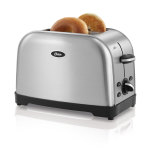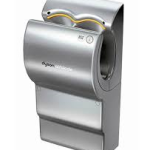Our students are taught how to navigate the world within the confinements of a schoolhouse, yet when they enter the real world the schoolhouse is one of the least likely places for them to be. When we make a commitment to increase independence we can’t just limit our teaching tools to what we have in the classroom. While teaching how to make toast is a great initial lesson in cooking, if it is only taught in the context of one toaster the learner often times will be unable to generalize their skill to other toasters that differ even slightly in operation.
If a learner can independently use a hand dryer, that is wonderful, but only if they are also learning how to generalize that skill to similar functioning hand dryers that trigger differently. Empowering kids means empowering them to navigate the variations life will throw at them. Think about many of the functional skills taught in the schoolhouse:
- How to open a door
- How to flush a toilet
- How to open a lock with a key
- How to turn a light on and off
- How to turn water on and off
- How to use the phone
- How to fill out a resume
- How to start up a computer
- How to order lunch
- How to open a suitcase
- How to put your shoes on
Think of all the variations that those can come in out in the real world. Though your student may have mastered using the microwave in your room, not all microwaves are created equal. The challenge is that educators are restricted to what resources they have in the schoolhouse. There is only so much that one can do, but what you can do are these:
- Make the schoolhouse a bigger world. If there are multiple bathrooms at school, have your student master using each. If there are different types of doors or different light switches, give the opportunity to generalize. Branch out from the classroom or hall in which you live.
- Bring the world to the schoolhouse. Bring in different types resumes, have parents send their students in different types of shoes, bring in different types of latches and locks. Certainly not all at once, but as the learner masters one we can ensure greater independence by systematically progressing through different variations of the same task.
- Make field trips purposeful. If you are going to the pumpkin patch, make sure they use the outhouse with hand sanitizer. If you are going to the mall, make sure they practice getting on the computers at the computer store and finding Google. When you are out of your building, maximize those experiences the learner would not otherwise get in school.
- Connect with home. The families of our students take field trips all of the time as a part of their weekly routine. Communicate with home what skills can start to be generalized in other people’s homes, at church, at the doctor, and at the park.
Varying the experience leads to one being very experienced. Change it up anyway you can. It will keep things fresh and challenging for the learner and they will be more equipped for what is to come.









